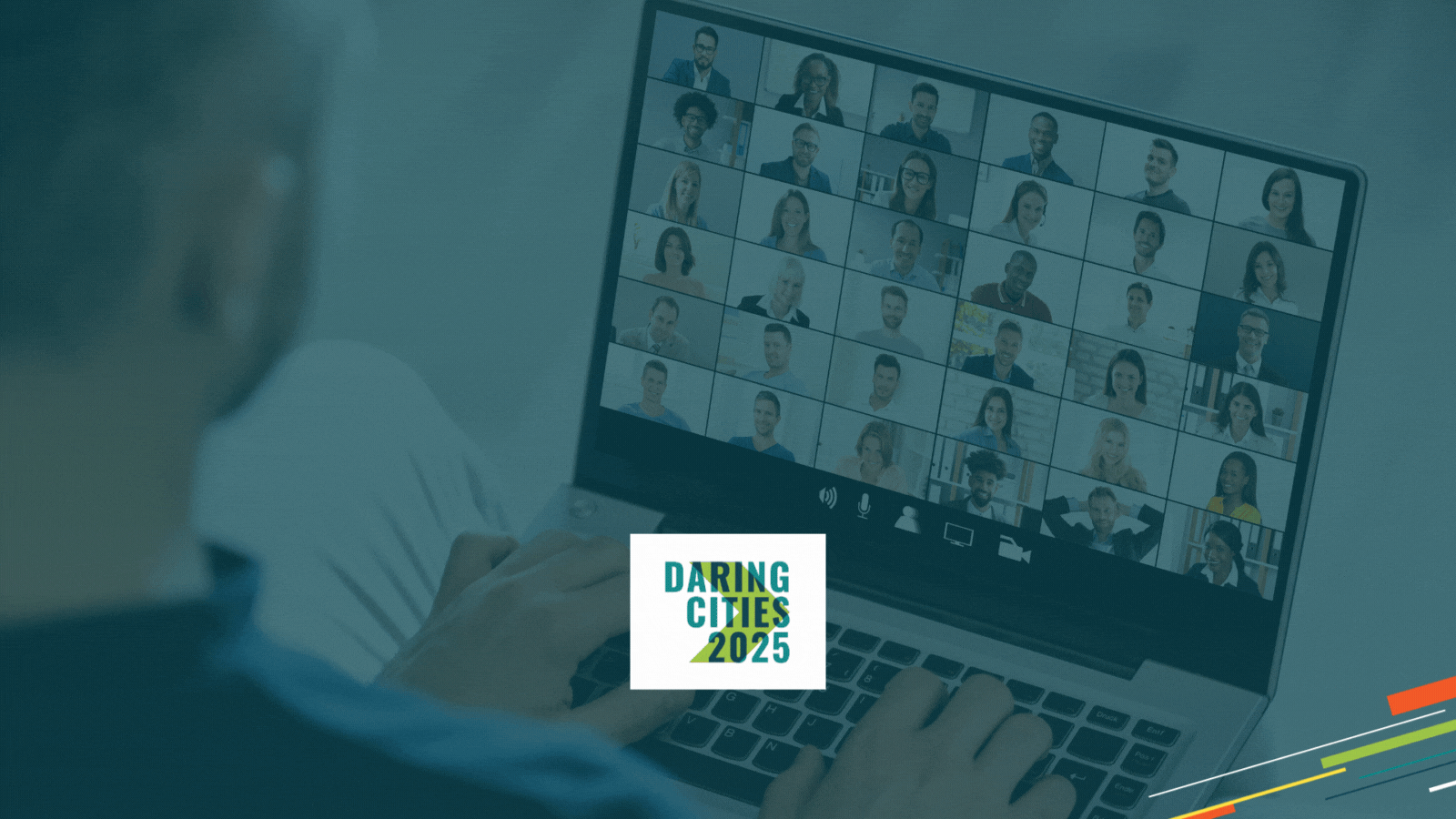
From July to October, the Daring Cities 2025 Virtual Forum offered free, solution-oriented online events showcasing real city cases, hands-on workshops, and technical training exploring challenges and opportunities to tackle the climate emergency.
This edition featured special sessions on the Town Hall COPs, demonstrating how this initiative can accelerate local action and enrich NDC 3.0 implementation beyond COP30. By supporting the Town Hall COPs, we are committed to creating and sustaining a cycle that connects local, national, and global climate action, driving real change from the ground up.